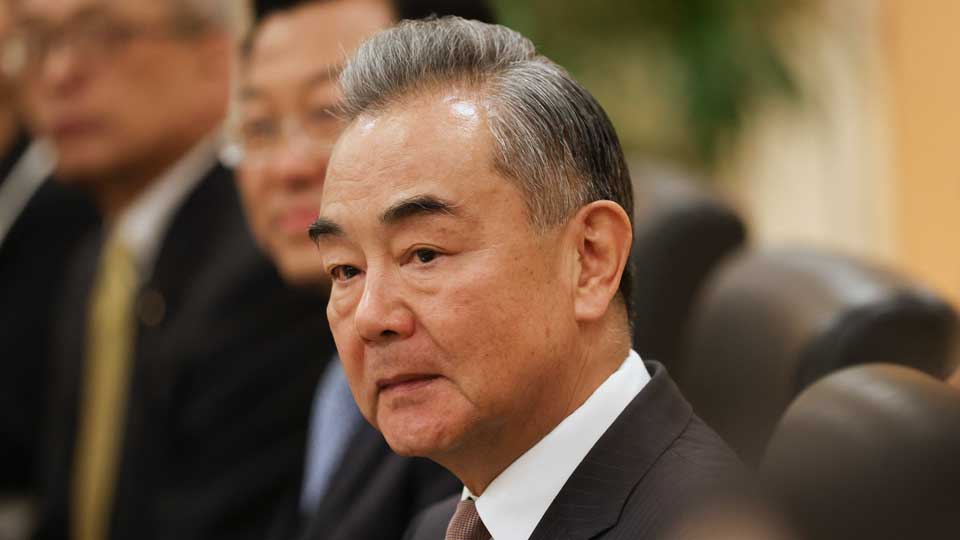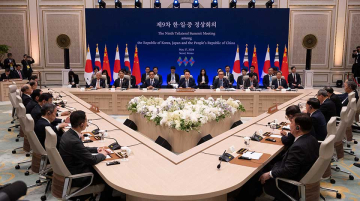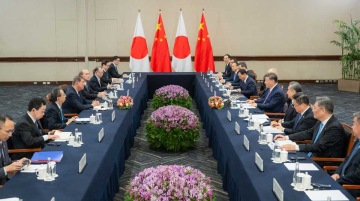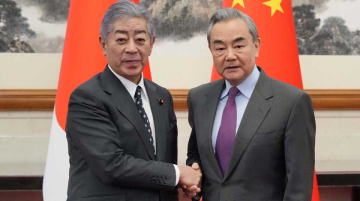
China’s foreign minister told his new Japanese counterpart during a phone call on Wednesday that he hopes to make progress in bilateral ties while also warning of external “interference.”
Tensions have recently been building between Beijing and Tokyo recently as China expands its military presence in the region and Japan boosts security ties with the United States and its allies.
Wang Yi told Japan’s Takeshi Iwaya that he was looking forward to “a new atmosphere… and to new progress in China-Japan relations”, Chinese state broadcaster CCTV said.
China’s top diplomat also said Beijing hopes “Japan will abide by its political commitments on the Taiwan issue, unswervingly adhere to the one-China principle,” according to the CCTV report.
“In the face of a turbulent international situation, maintaining overall peace and stability in the region is hard-won and should be cherished,” it quoted Wang as saying.
Wang said the two sides should “prevent external forces from inciting trouble and stirring up regional confrontation”.
“Both sides should learn from history, stay true to their original aspirations, expand cooperation, eliminate interference, comprehensively promote China-Japan strategic and mutually beneficial relations,” Wang said.
Iwaya, who was appointed as Japan’s foreign minister on October 1, said last week that Tokyo was seeking a “constructive and stable relationship” with China.
A Chinese military aircraft staged the first confirmed incursion by China into Japanese airspace in August, followed weeks later by a Japanese warship sailing through the Taiwan Strait for the first time.
While China claims jurisdiction over the body of water and over democratic Taiwan, the United States and its allies are increasingly crossing the 180-kilometer strait to reinforce its status as an international waterway.
Adding to recent tensions, Beijing’s rare test launch of an intercontinental ballistic missile into the Pacific Ocean in late September drew strong protests from Tokyo, which said it had not been given advance notice.
Ties between the two countries also suffered last year after Japan began discharging treated water from the disabled Fukushima nuclear plant into the ocean—an operation the UN atomic agency deemed safe.
China reacted angrily, denouncing the move as “selfish” and banning all Japanese seafood imports.
However, China said last month that it would “gradually resume” importing seafood.






